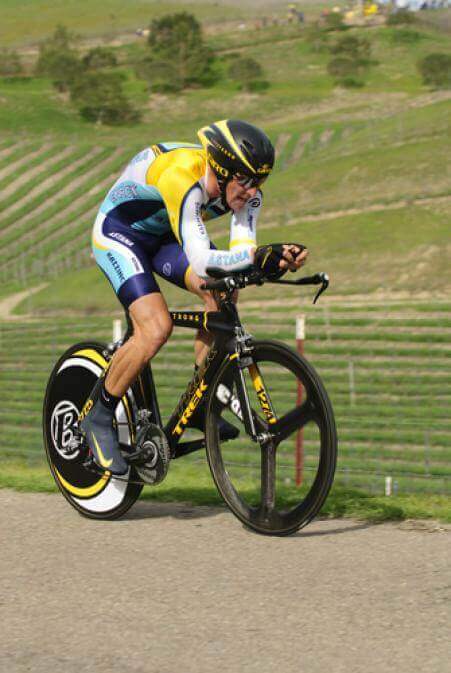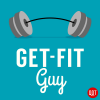Should You Take Testosterone to Get Fit?
Learn the pros and cons of taking testosterone to get fit, and whether or not a guy like Lance Armstrong (or you) could lose fat, gain muscle, or increase performance quickly without taking testosterone.
Ben Greenfield
Listen
Should You Take Testosterone to Get Fit?

Recently, it was announced that Australian researchers started the world’s first study that aims to help men lose weight and prevent diabetes by giving them testosterone.
That’s right–testosterone is not just something that professional football players, bodybuilders, baseball players, weight lifters, and guys like Lance Armstrong can take to maximize sports performance. For both men and women, low testosterone, in addition to being something that can cause you to gain weight, lose motivation to exercise, and have lower sexual function, is also closely associated with type 2 diabetes and poor blood sugar control.
So, here’s the question. Should you take testosterone to get fit or to stay healthy? Find out in this episode and learn whether or not you can lose fat, gain muscle or increase performance quicky without taking testosterone.
Why Did Lance Armstrong Take Testosterone?

So why would someone like Lance Armstrong, or any number of other athletes, take testosterone? Or, for that matter, why would the Australian researchers look at how testosterone can help men get more healthy?
One reason is that testosterone increases the size of individual muscle cells. A bigger muscle cell pulls harder, so you can gain strength that way. In addition, testosterone encourages muscle cells to build more muscle cells. So you not only get bigger cells, but you have more of them. And that means you can contract your entire muscle stronger. (is this last sentence right? seems to be missing something or should be plural?)
But high testosterone goes beyond just getting bigger, stronger muscles or better curves. In both males and females, testosterone also:
-
Makes you feel more energetic and active
-
Increases your libido and sexual performance
-
Improves mental focus
-
Increases motivation and competitive drive
-
Raises emotional well-being
-
Lowers or controls body fat levels
If your testosterone level is low, this can contribute to:
-
Erectile dysfunction
-
Reduced sex drive
-
Decreased energy
-
Loss of body hair
-
Depressed mood
-
Increase in body fat
-
Decrease in bone strength
-
Reduced muscle mass
-
Loss of competitive drive
Is Testosterone Dangerous?
So with all these benefits of high testosterone and drawbacks to low testosterone, why would it be banned in (should we say professional sports?) sports, or given a raised eyebrow when it comes to supplementation as a hormone replacement therapy?
The answer for sports is two-fold:
-
If an athlete is using testosterone, it may create an unlevel playing field – especially since hormone replacement therapy can be expensive or hard to properly manage with dosing and testing. This means using it may not be logistically or financially available to all athletes. This is a polarized topic, especially since there are amateur sports, such as triathlons, in which some individuals are taking testosterone for health reasons, but also competing. (Listen to this related interview for a good perspective on this conundrum).
-
The use of a powerful, performance enhancing drug such as testosterone sends a message that skill and hard work can be replaced with drugs, which is an especially damaging message to send to young athletes.
If testosterone is being used for health reasons, things get a bit more tricky to understand. After all, if you’re not competing in a sport that has banned its use,, why not just take it as a health enhancement to lose fat, gain muscle, control blood sugar, or become healthier or more motivated to exercise?
Don’t do it. The risks of using a testosterone cream, injection, or patch are basically this: each of these forms of testosterone enters your body in free and “unbound” form, often times in significant amounts. When your pituitary gland, which is normally responsible for making the hormones (particularly one called “LH”) that would cause you to churn out more testosterone, senses this high level of testosterone, it shuts down production of your body’s own testosterone stimulating hormones.
In addition, since all your cells operate on what is called a “negative feedback loop,” the more testosterone you have circulating around in your bloodstream, the less sensitive your cell surface receptors become to the testosterone’s action, so you need more and more testosterone to get the same effect. When you finally do stop taking testosterone,you experience a significantly lower amount of naturally generated testosterone and a depressing withdrawal effect, whichcan last for many months.
Ways to Increase Testosterone Naturally
Now that you know the potential downside of using testosterone hormone replacement, here are some ways you can naturally increase your body’s testosterone, without the use of fancy pills, herbs, or supplements.
-
Lower sugar intake. Any time you eat sugar and starch, your pancreas releases insulin, and high insulin upregulate aromatase activity (which means more testosterone gets converted into estrogen) and also cause an increase in Sex Hormone Binding Globulin(SHBG), which binds to circulating testosterone and renders it ineffective. So stay away from processed sugar, candy, soda, and even high amounts of things like pasta and bread.
-
Control stress. When you’re stressed out, you release high amounts of your body’s “flight and flight” hormone: cortisol. A precursor to cortisol is called pregnenolone. Unfortunately, pregnenolone is also a precursor to testosterone – so the more cortisol you make the less testosterone your body can make. A good place to start controlling stress is with simple breathing exercises, which you can learn more about here.
-
Lower inflammation. In the same way that insulin can lower testosterone, inflammation from lack of recovery, inadequate sleep, poor dietary habits, environmental toxins and pollutants, and many other common triggers can increase levels of “cytokine” molecules, which cause reactions similar to those experienced when eating a high sugar diet. My fellow Quick and Dirty Tips host The Nutrition Diva actually has a great website that thoroughly expands on the topic of inflammation.
-
Exercise. Sprints, heavy lifting, doing hard leg exercises and avoiding very long cardio sessions can all help to boost testosterone, and you can read about many of these techniques in more detail in my article on this topic 6 Ways To Boost Testosterone With Exercise.
Finally, although the topic is controversial and rife with over-promotion, if you do want to learn about testosterone supplements, you can click here for an article I wrote on my blog that discusses this issue. If you have more questions about whether you should take testosterone to get fit, you can post them in Comments below or join the conversation at Facebook GetFitGuy!
Lance Armstrong image from Shutterstock

